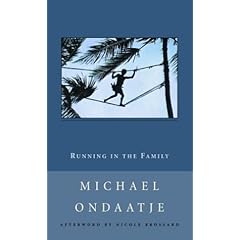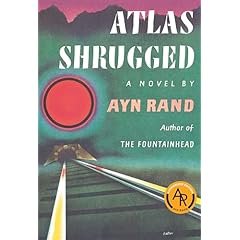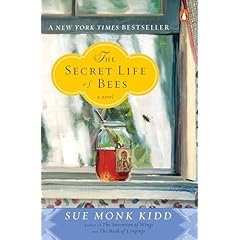
After the god-like feat of completing Atlas Shrugged, I've opted for something a little lighter for my next read, both physically and philosophically speaking.
Michael Ondaatje's Running In the Family was thrust into my hands by a friend while we ransacked the racks at a charity book sale. "Have you read this?" she mumbled, half of her attention focused on me, the other half focused on scanning the rest of the titles in the shelf she was currently perusing. "You probably have, 'cause it's good."
I hadn't read it, and I never turn down a recommended book! Since I liked In the Skin of a Lion, and The Collected Works of Billy the Kid is on my must-read list, I figured that spending $2 on another of Ondaatje's books would be a sensible investment.
So far, it's paying off! This book is arranged as a memoir, with bits of story, poetry, photographs intermingling to paint an autobiographical tale where truth takes a backseat to beauty. I'm really enjoying it so far. I suppose I should attempt to articulate why: I think it has something to do with how Ondaatje represents history as memory--a not-to-scale map of stories that have been told and retold enough times that they become the significant elements of a family history. I like the idea that history lies in incidents; that incidents can have more impact than big-picture themes...


